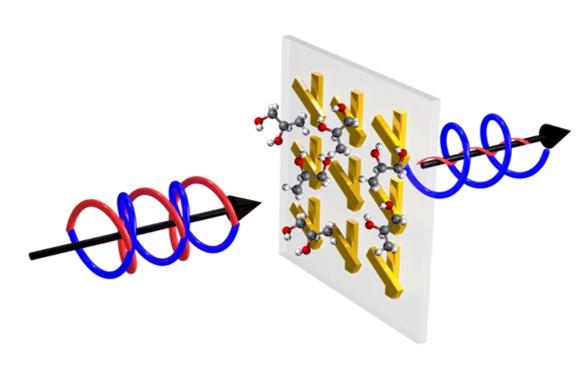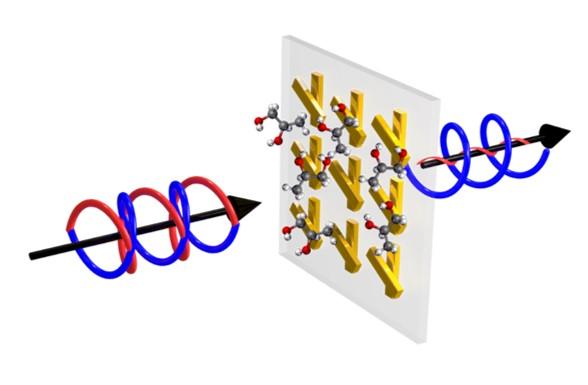Supported by a major multi-year funding, the collaboration seeks to change our understanding and control of wave propagation, enabling leapfrog technologies

Credit: Y. Zhao
NEW YORK, June 22, 2020 — Andrea Alù, founding director of the Photonics Initiative at the Advanced Science Research Center at The Graduate Center, CUNY (CUNY ASRC), Einstein Professor of Physics at The Graduate Center, CUNY, and a professor of electrical engineering at The City College of New York, has been selected to lead a highly prestigious scientific project supported by the Simons Foundation through the Simons Collaborations in Mathematics and the Physical Sciences program.
The effort, dubbed the Simons Collaboration on Extreme Wave Phenomena Based on Symmetries, will receive up to $16 million in support for research spanning up to eight years in duration. Alù will lead an interdisciplinary team of researchers from the U.S. and Europe with broad expertise in mathematics, theoretical and applied physics, materials science, and electrical and mechanical engineering.
The ambitious project seeks to better understand how various symmetry concepts govern light and sound wave propagation in order to develop advanced principles that can guide the design of new engineered materials with exotic wave properties, facilitating completely new technologies.
“At the microscopic scale, various symmetry laws govern the properties of natural materials, and they fundamentally define the way waves, such as light and sound, propagate in these materials,” said Alù. “Recently, there has been growing recognition that we can engineer materials from the nanoscale up, taking advantage of these symmetry rules, and even creating new symmetry concepts to endow materials with unprecedented properties. These possibilities open groundbreaking opportunities for manipulating and controlling wave propagation and transport processes. Leveraging tools from mathematics and physics to unveil these concepts to their full extent, we can open a game-changing paradigm for materials science and engineering, with a profound impact on a broad range of technologies, including wireless communications, biomedical sciences, laser technologies, energy harvesting, and computing.”
Alù’s team will employ recently developed theoretical concepts for wave physics in complex media along with advances in nanotechnologies and nanofabrication of engineered materials to drive development of their work. Specifically, they will leverage tools from applied mathematics, theoretical and computational physics, modern optics and photonics, acoustics, and mechanics to pursue their overarching goals of developing a unified theory based on symmetry principles for exotic wave transport in engineered materials. Their findings will drive the discovery of new forms of synthetic matter that enable extreme control of wave transport, and ultimately develop a plethora of new devices and breakthrough technology.
###
About the Advanced Science Research Center
The ASRC elevates scientific research and education at CUNY and beyond through initiatives in five distinctive, but increasingly interconnected disciplines: environmental sciences, nanoscience, neuroscience, photonics, and structural biology. The ASRC promotes a collaborative, interdisciplinary research culture with renowned researchers from each of the initiatives working side-by-side in the ASRC’s core facilities, sharing equipment that is among the most advanced available.
About The Graduate Center of The City University of New York
The Graduate Center of The City University of New York is a leader in public graduate education devoted to enhancing the public good through pioneering research, serious learning, and reasoned debate. The Graduate Center offers ambitious students more than 40 doctoral and master’s programs of the highest caliber, taught by top faculty from throughout CUNY — the world’s largest public urban university. Through its nearly 40 centers, institutes, and initiatives, The Graduate Center influences public policy and discourse and shapes innovation. The Graduate Center’s extensive public programs make it a home for culture and conversation.
Media Contact
Shawn Rhea
[email protected]





